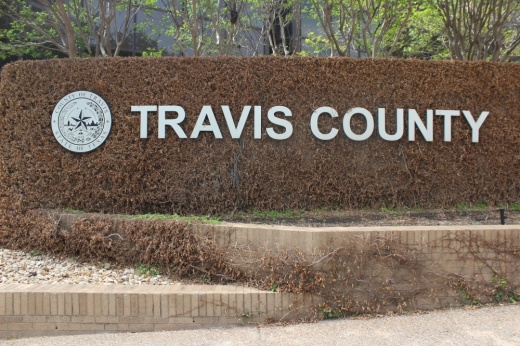The jail, called the Travis County Trauma Informed Women's Facility, would be an $80 million project as part of the county's 20-year master plan developed in 2016. It would consolidate women inmates in Travis County to a single facility; they are currently spread across facilities shared with men where there is inadequate health care and programming infrastructure, according to sheriff's office staff.
A scheduled vote to award a design contract for the facility became a lightning rod in recent weeks, with groups including the Texas Fair Defense Project and Grassroots Leadership calling for commissioners to prioritize jail diversion efforts over new jail facilities in light of Travis County's declining jail population. Judge Andy Brown publicly supported these voices.
"To address trauma, we must invest in community-based services," Brown said June 14 in a series of tweets. "We can also help women by improving our existing facilities now, rather than waiting four years for a different building."
The approved resolution asks county staff to present a report by Aug. 15, including a proposal for updates to the Travis County Adult Correctional System Needs Analysis and Master Plan, with recommendations for community-based resources, such as mental health care, that are worthy of investment. It also directs staff to investigate options to provide better trauma-informed programming and health care in Travis County jails.
A vote to award a $4.6 million design contract for the new women's jail to HDR Architecture was postponed indefinitely; the approved resolution stipulated the construction or design of any jail facility should be paused for at least a year.
The decision came after extensive debate between commissioners and upended expectations that had been laid out a week prior, when then vote was initially scheduled to take place. At the court's June 8 meeting, commissioners agreed to Brown's request to postpone the vote for a week, although Commissioners Brigid Shea, Jeff Travillion and Margaret Gomez all said they were firm in their support of the new jail.
"I don't think this is going to change in a week," Shea said at the time.
At the June 15 meeting, however, Gomez opened conversation by saying she was open to the resolution to update the master plan and postpone plans for the women's jail, if only to work toward raising awareness and education of the issue before moving forward.
"I do think that the public needs to be educated about the criminal justice system in Travis County, and the way we operate ... I need to be more educated on diversion programs as well," Gomez said. "I'm willing to give this a try."
Shea also said she was amenable to the resolution, but initially took a hard stance against Brown's late-added provision to postpone construction on new facilities for a year, which would effectively table design of the women's jail, citing a report from 2018 that said any delay would be detrimental to women inmates.
Travillion agreed with Shea and critiqued the general tenor of debate around the issue; his yard, he said, had been defaced the morning of June 15 by anti-incarceration activists criticizing his stance in favor of the jail, an act he said was stirred into motion by social media call-outs and "pressure tactics."
"What has happened these last couple of weeks is dishonorable, and the only way that we're going to change it is choosing to work together in good faith," Travillion said.
However, Shea, Travillion and Gomez all ultimately voted in favor of both the resolution and a pause on the women's jail, following calls during the meeting's public comment period by more than 100 community members, by staff's count. Nearly all of them asked commissioners to vote down any plans that would progress the new jail in favor of community-based incarceration-diversion programs.
"There's such broad and deep opposition to the jail because it doesn't make sense," said one caller, Amanda Woog, Texas Fair Defense Project executive director. "It makes no sense to build a brand new $80 million jail with more than double the beds than there are people in jail right now ... it makes sense to research and identify gaps in community resources."
Travillion, whose support for the new jail hinged on the premise that rehabilitation and supportive resources in jails were worth supporting as long as community resources were lacking, said he was on board with advocates' ideas to support more community diversion programs and resources.
"This is structural change. Everybody wants to snap their fingers and make change happen, but change doesn't happen that way, and some of us have been waiting for change for a long time from a lot of folks who don't want to give up their privilege," he said. "So if we want to move forward together, let's move forward together. But it's going to take sacrifice that has not occurred in this community ever before—so let's do it."
Commissioners also voted to study the possibility of combining a mental health diversion program with the Austin-Travis County Sobering Center. If deemed to be viable, the program would pilot the ability for individuals experiencing mental health crises to be diverted to the Sobering Center to receive mental health support rather than be booked in a jail.





